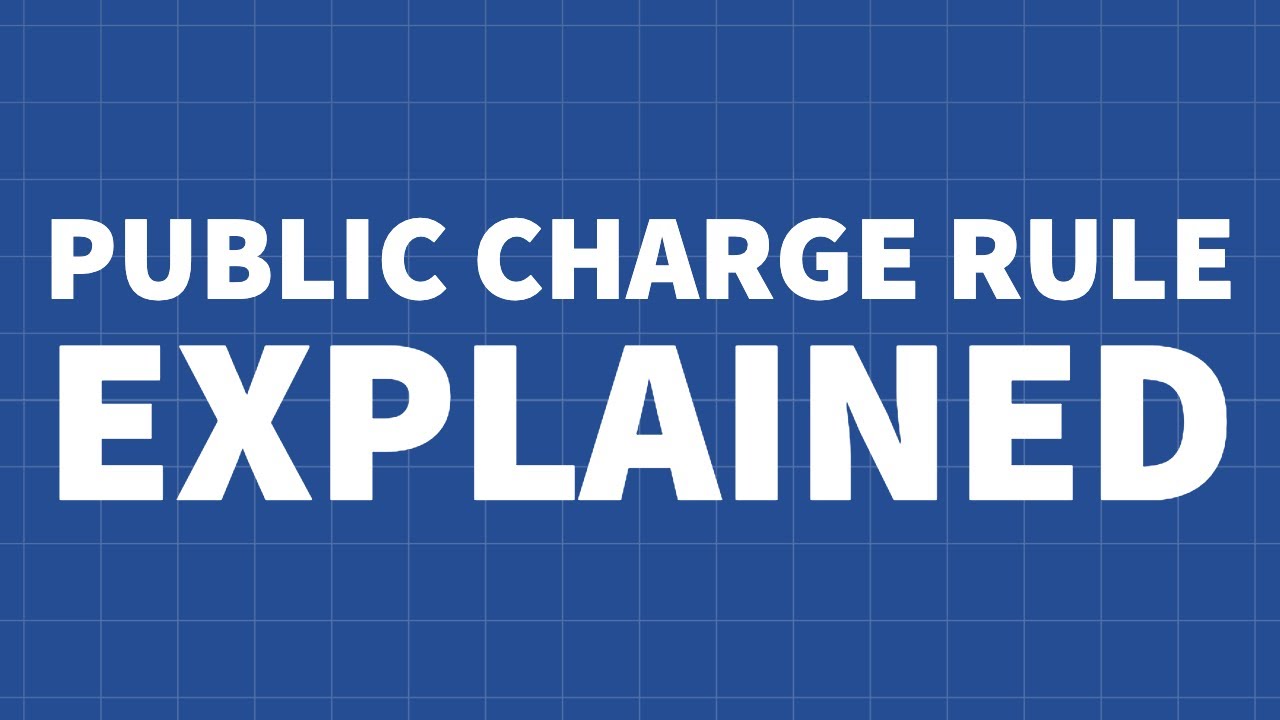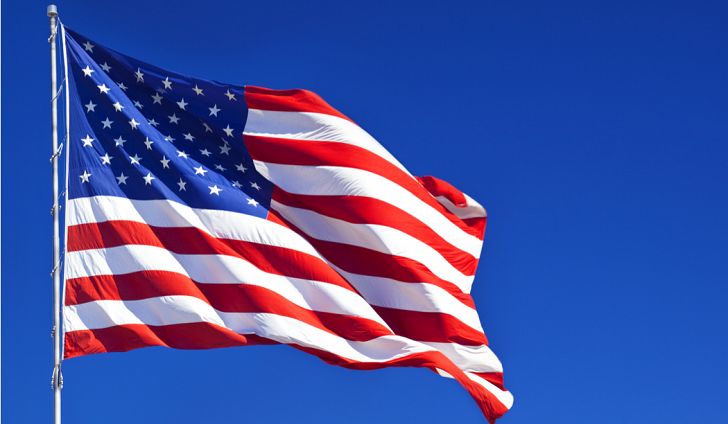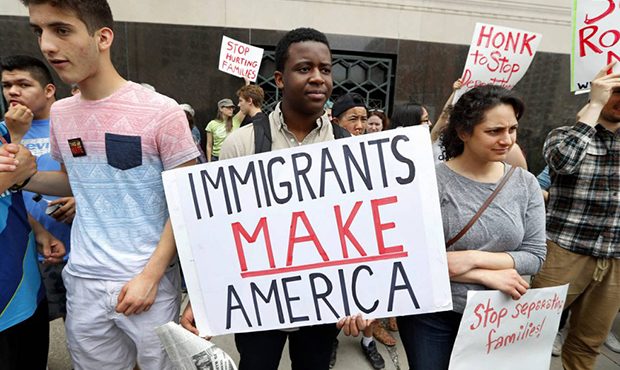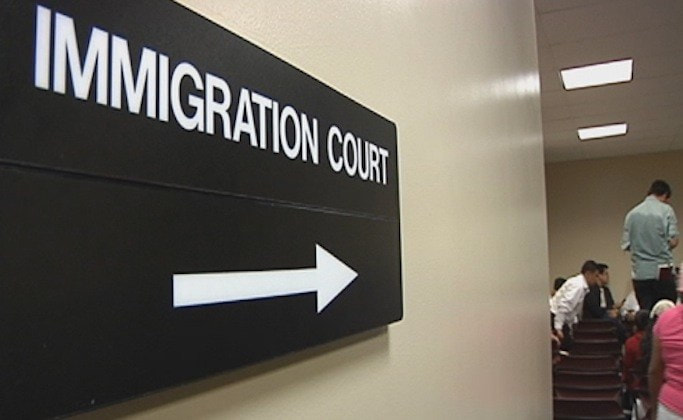
USCIS advised that any I-485 application filed on or after December 23, 2022, must use the new version of Form I-485. Failure to do so will result in the USCIS rejecting the filing.
While a new Form I-485 is required, the form I-864, Affidavit of Support remains the same.
On December 19, 2022, USCIS issued a follow-up Policy Alert regarding implementing the new public charge rule visa changes to the USCIS Policy Manual and provided a resources page for reference.
On September 8, 2022, the U.S. Department of Homeland Security (DHS) issued a new final rule to be published in the Federal Register on September 9, 2022, addressing the public charge ground of inadmissibility found at INA §212(a)(4). The final rule came into effect on December 23, 2022. The final rule announcement also noted that USCIS would issue a revised Form I-485.
The public charge ground of inadmissibility is found at §212 of the Immigration and Nationality Act, as amended (INA). INA §212 provides several grounds for a noncitizen being considered “inadmissible” to the United States. The public charge ground of inadmissibility applies to applicants for visas, admission, and adjustment of status, unless the noncitizen is exempt.
INA §212(a)(4)(A) states that a noncitizen “likely at any time to become a public charge is inadmissible.” INA §212(a)(4)(B) states that, at a minimum, adjudicators should consider the applicant’s “age, health, family status, assets, resources, and financial status; and education and skills” when determining whether a noncitizen is likely to become a public charge. Additionally, an adjudicator “may also consider any affidavit of support” under INA §213(a) when applicable, noting that in cases where an affidavit of support is required, a noncitizen’s failure to provide a sufficient affidavit of support from the petitioner and any additional sponsor(s) makes the noncitizen inadmissible regardless of other factors.
For decades, USCIS interpreted the meaning of “likely to become a public charge” based on a 1999 Interim Field Guidance release. Under this guidance, a noncitizen would be considered likely to become a public charge if DHS determined that they were likely to become primarily dependent on the government for subsistence. For example, it would apply if the individual was likely to become dependent on direct cash assistance, like Supplemental Security Income (SSI) or Temporary Assistance for Needy Families (TANF), or to individuals who rely on Medicaid-financed “long-term institutionalization,” such as a nursing or psychiatric facility. A 2019 rule put into effect by the Trump Administration sought to change this longstanding guidance, which significantly expanded the policy to include anyone who used a broader array of public benefits for more than 12 cumulative months over any 36 months. The courts held up the 2019 rule, but the Biden Administration ultimately rescinded it. The “new” 2022 public charge rule essentially restores the status quo.
Under the new rule, “likely at any time to become a public charge” means likely at any time to become primarily dependent on the government for subsistence, as demonstrated by either the receipt of public cash assistance for income maintenance or long-term institutionalization at government expense. According to the preamble to the final rule, primarily dependent “connotes significant reliance on the government for support, and means something more than dependence that is merely transient or supplementary.”
For purposes of a public charge inadmissibility determination, “public cash assistance for income maintenance” means:
Supplemental Security Income (SSI);
Cash assistance for income maintenance under the Temporary Assistance for Needy Families (TANF) program; or
State, tribal, territorial, or local cash benefit programs for income maintenance, commonly called “General Assistance.”.
For a public charge inadmissibility determination, “long-term institutionalization at government expense” means government assistance for long-term institutionalization (in the case of Medicaid, limited to institutional services under section 1905(a) of the Social Security Act) received by a beneficiary, including in a nursing facility or mental health institution. Long-term institutionalization at government expense is the only category of Medicaid-funded services (limited to institutional services under section 1905(a) of the Social Security Act) considered in a public charge inadmissibility determination.
USCIS Adjudicators, using a totality of the circumstances test, will consider the statutory minimum factors, an affidavit of support when required, and the additional factor of current and/or past receipt of public benefits. However, this additional factor is limited to the applicant’s receipt of public cash assistance for income maintenance or long-term institutionalization at government expense, with several exemptions, such as the Supplemental Nutrition Assistance Program (SNAP).
Importantly, any USCIS denial under the public charge inadmissibility ground must be in writing, “reflect consideration of each of the factors outlined (under the rule), and specifically articulate the reasons for the officer’s determination.”
Unless specifically exempted, all applicants for adjustment of status, including those applying through family-based petitions, employment-based petitions, and diversity applications, are subject to the public charge ground of admissibility. The appendices to Part G of Volume 8 of the USCIS Policy Manual provide helpful charts and guidance regarding when an affidavit of support is necessary.
The vast majority of both employment-based and family-based petitions are subject to the public charge ground of inadmissibility. In the employment-based categories, noncitizens are generally subject unless the applicant is adjusting based on an employment-based petition where the petition is filed by either a qualifying relative, or an entity in which such relative has a significant ownership interest (5 percent or more).
The applicant must also qualify for a category exempted under INA §212(a)(4)(E) (T nonimmigrants, U nonimmigrants, and VAWA self-petitioners, for example) at both the time of filing and adjudication of Form I-485. The applicant is not subject to INA 212(a)(4) (but is still required to file Form I-864). A qualifying relative means a husband, wife, father, mother, child, adult son, adult daughter, brother, or sister.
Even where exempt, some noncitizens applying to adjust status may still be required to submit an Affidavits of Support under Section 213A of the INA. This includes noncitizens whose employment-based petition was filed by a relative or by an entity in which the noncitizen’s relative has a significant ownership interest.
The public charge ground of inadmissibility does not apply to certain applicants for visas, admission, and adjustment of status applicants based on statutory or regulatory authority. For example:
Asylees and refugees
Applicants adjusting under the Cuban Adjustment Act
Special immigrant juveniles
Applicants seeking Temporary Protected Status (TPS),
Victims of human trafficking (T nonimmigrants),
Victims of qualifying criminal activity (U nonimmigrants),
Certain ambassadors and diplomats.
The new 12/23/22 edition of the I-485 Form includes a series of new questions in Part 8:
Q 61. Are you subject to the public charge ground of inadmissibility under INA section 212(a)(4)? This question is challenging for any applicant. USCIS includes appendices to Volume 8, Part G of its Policy Manual regarding the interpretation of this question for employment-based, family-based, special immigrant, refugee, asylee, parolee, and other adjustment applicants.
Q 62. What is the size of your household? According to the I-485 Form Instructions, the following individuals should be included in your household size:
You;
Your spouse, if physically residing with you;
Your parents, if physically residing with you;
Your unmarried siblings under 21 years of age, if physically residing with you;
Your children as defined in INA 101(b)(1), if physically residing with you;
Any other individuals (including a spouse or child not physically residing with you) who are listed as dependents on your federal income tax return; and
Any other individuals who list you as a dependent on their federal income tax return.
Q 63. Indicate your annual household income.
Applicants are instructed to check an income range based on the household’s total income. According to the I-485 Form Instructions, you may include income provided to your household from sources who are not members of your household, including but not limited to alimony or child support. You must exclude any income from Supplemental Security Income (SSI); Temporary Assistance for Needy Families (TANF); State, Tribal, territorial, or local cash benefit programs for income maintenance (often called “General Assistance” in the State context, but which also exist under other names)..
Q 64. Identify the total value of your assets. Applicants are instructed to check the appropriate box for the total value of household assets. When considering the applicant’s financial status, USCIS also considers the noncitizen’s household’s assets and resources, for example, investments or home equity, excluding any assets from illegal activities or sources, such as proceeds from illegal gambling or drug sales.
Q 65. Identify the total value of your household liabilities (such as loans, alimony, and child support payments.). Applicants are instructed to check the appropriate box for the total value of household liabilities. See explanation above.
Q 66. What is the highest degree or level of school you have completed?
Q 67. List your certifications, licenses, skills obtained through work experience, and educational certificates. According to the I-485 Form Instructions, applicants are to list all of your certifications, licenses, skills obtained through work experience, and educational certificates. This includes but is not limited to workforce skills, training, licenses for specific occupations or professions, foreign language skills, and certificates documenting mastery or apprenticeships in skilled trades or professions. Educational certificates are issued by an educational institution (or a training provider) and certify that an occupation specific program of study was completed.
Q 68.a. Have you ever received Supplemental Security Income (SSI), Temporary Assistance for Needy Families (TANF), or State, Tribal, territorial, or local, cash benefit programs for income maintenance (often called “General Assistance” in the State context, but which also exist under different names)?
Q 68.b. Have you ever received long-term institutionalization at government expense?
Q 68.c. If you answer to Item Number 68.a. is “Yes,” list the benefit(s) you received, the start and end dates of each period of receipt, and the dollar amount of benefits received.
Q 68.d. If your answer to 68.b. is “Yes,” list the name, city, and state for each institution, the start and end dates of each period of institutionalization, and the reason you were institutionalized.
Questions 68.a. – 68.d. are only asking about public benefits (in other words, public cash assistance for income maintenance and long-term institutionalization at government expense) you received in the past or are currently receiving at the time the Form I-485 is filed, and where you were/are a listed beneficiary.
Exceptions: Do not include any public benefits for which you are not listed as a beneficiary, even if you assisted with the application. Do not include benefits that you only applied for, or were approved to receive in the future but have not received in the past and/or are not currently receiving. Do not include public benefits you received only on behalf of another individual.
USCIS explained that public assistance for COVID-19 testing, vaccinations, or treatment is not considered in evaluating the public charge. Nor does USCIS consider public assistance in other forms if related explicitly to COVID-19, such as food, housing, cash assistance, rental assistance, tax credits, stimulus payments, unemployment, and financial aid grants to students, the Paycheck Protection Program, and student loan forbearance.
New public charge section of the adjustment application Form I485 added a lot of new questions. In addition, applicants not only swear that all information on the application is correct but also that all information provided with the application is complete, true, and correct.
USCIS may reject or deny an adjustment application for failure to submit requested evidence or supporting documents as stated in the instructions to Form I-485 and as stated in 8 CFR §103.2(b)(1).
Currently, the USCIS Policy Guidance states that noncitizens are not required to submit any specific evidence relating to their household’s income, assets, and liabilities; however, USCIS may request additional evidence on a case-by-case basis if more information is needed to make a public charge inadmissibility determination. The new I-485 changes made it more difficult for applicants to complete forms I-485 by themselves.
Resources:
- New form I485 https://www.uscis.gov/i-485
- See 8 CFR §212.21(b). USCIS does not consider benefits that are not referenced above when making a public charge inadmissibility determination. See 8 CFR §212.22(a)(3).
- See 8 CFR §212.21(c)
- 8 CFR §213a.1.
- USCIS Policy Manual: https://www.uscis.gov/green-card/green-card-processes-and-procedures/public-charge/public-charge-resources
and here:
https://www.uscis.gov/policy-manual/volume-8-part-g








 RSS Feed
RSS Feed